Fruits And Some Health Benefits Of Tasty Fruits
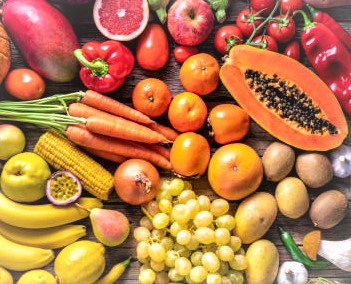 |
| Fruits |
Fruits
Fruits are mature ovaries with or without seeds so, there are many fruits that mostly have got seeds. There are other fruits also which do not have seeds. The formation of fruits can take place without the process of fertilization that is a fusion of male and female gametes of the flowers so, if the fruit is formed without this process of fertilization of this type of fruit is known as the party.
Fruits low in calories
Fresh Grapefruit contains 42 kcal per 100 grams. The main plus is the high content of vitamin C, 34% of the daily dose, and a whole list of B vitamins. There are fewer calories in grapefruit juice 39 kcal, and more vitamin C. In 100 grams of fresh berries 57 kcal. Blueberries contain many beneficial vitamins and minerals, including high levels of vitamin E. sweet cherry contains 52 kcal per 100 grams. Cherries contain dietary fiber, pectins, and malic acids.
Fresh strawberries have 32 kcal and a huge vitamin C content, 52% of the daily value. Plums, A fresh product contains 46 kcal, a lot of vitamins A, C, and E, slightly fewer vitamins than group B. many fruits contain a lot of calories, for example, grapes, sweet apples, and ripe bananas.
100 grams of lemon contains 31 kcal, grapefruit 32-35 kcal, and oranges are about the same 38 kcal each. Several calories are higher in pears 42-44 kcal, plums, and peaches 43 and 44 kcal, apples and apricots 46 kcal each, pineapples 48 kcal, pomegranates 52 kcal. kiwi fruits have become very popular it contains 66 kcal and is very rich in vitamin C more than citrus fruits.
1. Watermelon
2. Lemon
The citrus family has the lowest calorie fruit, lemon among them. It is known to everyone as a storehouse of vitamin C, contains the smallest amount of calories after the watermelon, only 31.
3. Grapefruit
oranges, tangerines are some of the lowest-calorie fruits, in 100 grams they contain from 35 to 38 kcal. Grapefruit has fat-burning properties, reduces appetite, removes excess fluid, is useful for the liver and stomach. Orange boasts a high fiber content and all the same magic vitamin C, which we need to strengthen the immune system and the walls of blood vessels.
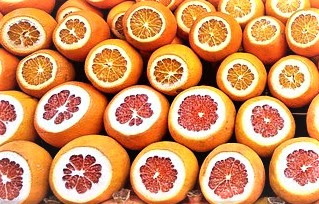 |
| Grapefruit |
4. Pear
This juicy fruit contains a little more calories 43. There are plenty of vitamins, fiber, and other useful components in the pear. Pear is especially rich in vitamins C, P, and B1, and its seeds contain iodine. Fiber, recall, is essential for better digestion.
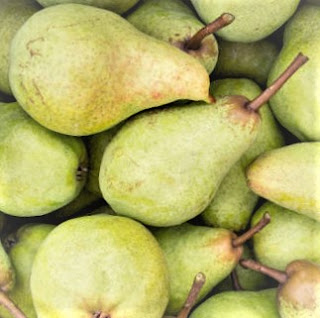 |
| Pear |
5. Apricot
Apricot is also one of the lowest-calorie fruits with an energy value of 44 kcal. The high content of phosphorus and magnesium in apricot improves mental performance and strengthens memory. Apricot is also a source of fiber and beta-carotene, which prevents cancer and heart disease.
 |
| Apricot |
6. Plum
Plum has a caloric value of 45, is also rich in vitamins, especially vitamin K and B groups are presented in large quantities. The fruit boasts a considerable content of potassium, magnesium, phosphorus, calcium, iron, as well as acids malic, citric, and oxalic. Plum is very effective for constipation and bladder problems.
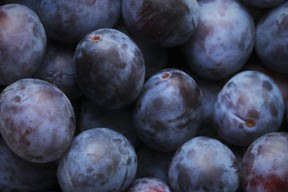 |
| Fresh Plum |
7. Kiwi
The kiwi is rich in many important nutrients. The Kiwi with 46 calories among the lowest calorie fruits. Kiwi contains many trace elements, vitamins, and fiber that a person needs.
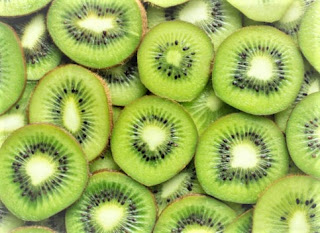 |
| Kiwi |
8. Apple
In 100 grams apple, depending on the variety, it can be from 47 to 51 kcal. Apples are rich in iron, phosphorus, pectin, which perfectly removes toxins. Apples perfectly cleanse the blood, lymph, and blood vessels.
9. Pineapple
Pineapple contains 48 kcal. Pineapple is known for the fact that it contains the valuable enzyme bromelain. Pineapple is perhaps the most demanded product for weight loss; the popular pineapple diet has been created on its basis. The exotic fruit has a positive effect on the metabolism and the digestion process. pomegranates 49 kcal, peaches, papayas 50 each, and some other fruits.
Health Benefits Of Some Tasty Fruits
1. Apple
Apple is delicious in the mouth, slightly tart, sometimes juicy or sweet, regularly consumed. apple contributes to our good health. The British are not mistaken, because a well-known proverb extols his virtues: "an apple a day keeps the doctor away".
The apple is rich in fiber, minerals, and vitamins and is very limited in calories, making it an ideal food for maintaining good health and very enjoyable weight management. It brings energy, as well as minerals and vitamins, without harmful fats to the body. Vitamin C, found in skin and pulp, provides energy while moisturizing the body, as this fruit contains 85% water.
Apple is the preferred food in case of hunger because it is high in calories; A medium apple provides 60 to 80 calories as carbohydrates are gradually absorbed by the body and cause long-term satiety, hard, crunchy, and juicy, it needs to be chewed for a long time to appreciate all the aromas, which contributes to its appetite suppression. |
| Apples |
The pectin and cellulose contained in its skin have many properties that improve digestion, regulate intestinal transit, improve the quality of bacterial flora, and lower blood cholesterol levels. The mechanisms of action are as follows: pectin forms a gel during digestion and retains lipids and cholesterol, slowing down their absorption.
On the other hand, fibers release fatty acids that protect against cholesterol. It contains antioxidants such as vitamins E and C, which stimulate the body's defenses, limiting tissue aging. Vitamin B5 contributes to the beauty of skin, nails, and hair, while vitamins B2 and PP contribute to the functioning and renewal of cells. Vitamin B1, for its part, is essential for the functioning of the nervous system.
2. Banana
The banana is hearty, tasty, and instantly energizing. The fiber in bananas helps to eliminate disturbances in the work of the gastrointestinal tract, Bananas are beneficial for the health and beauty of the skin, and their pulp is often used as a base for nourishing masks.
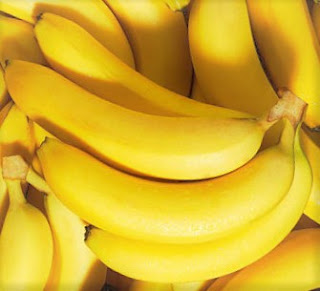 |
| Banana |
One or two bananas a day will provide an excellent mood since the same tryptophans from bananas in the human body are converted into the hormone of joy, serotonin. bananas can relieve itching and irritation for insects bites.
3. Pomegranate
Pomegranate will help cope with the virus. It turns out that this fruit has the most essential substances for us. Together with a nutritionist and nutritionist Anna Berseneva, we will tell you how this fruit will help improve your health. Pomegranate contains ascorbic, folic, and pantothenic. They contribute to healthy metabolism and a strong immune system.
They heal the body. Pomegranate has many health benefits. It strengthens the cardiovascular system, improves thyroid function and blood composition, and significantly helps in increasing hemoglobin. The fruit is able to lower blood pressure, so the benefits of pomegranate are undeniable for hypertension.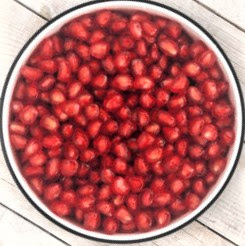 |
| Pomegranate |
pomegranate is contraindicated for those who have chronic diseases: gastritis, ulcers, enteritis, hemorrhoids, or a tendency to constipation, individual intolerance to pomegranate, allergic pathologies, increased acidity of the stomach. vitamins and trace elements in pomegranate take care of beauty and youth, improve the health of the skin and hair.
4. Strawberries
Strawberries are useful and their main properties have a beneficial effect on the body. Strawberries are often called the "queen of berries" due to their appetizing appearance, pleasant taste, and bright aroma. But, you should not treat it simply as a delicious dessert, it contains a huge amount of useful substances that have a beneficial effect on the human body.
Useful properties are determined by its rich chemical composition, which contains a large number of valuable elements, vitamins: A, E, C, PP, group B, macro-and microelements: potassium, sodium, calcium, magnesium, cobalt, manganese, nickel, vanadium, cobalt, molybdenum, fluorine, sulfur, chromium, silicon, iron, iodine, copper, zinc; organic acids and flavonoids; anthocyanins and serotonin; antioxidants and phenolic compounds.Strawberries are delicious diet foods. 100 grams of berries contain only 36-41 kcal. Strawberries contain Proteins of 0.9 grams, Fat 0.4 grams, Carbohydrates 7.6 grams, Dietary fiber 2.3 grams, Water 8.7 grams.
The rich chemical composition endows strawberries with some beneficial properties for the body: anti-inflammatory, antibacterial, antimicrobial, strengthening, tonic, diuretics, antioxidants, pain relievers, cleansing, anti-aging.
Strawberries improve the work of the cardiovascular and nervous system, strengthening immunity, stabilization of peristalsis and bowel cleansing, elimination of excess fluid and toxic substances, lowering blood sugar and cholesterol levels, reducing dry eyes and preserving vision, removal of salts from the articular tissue, improving the functioning of the brain and restoring memory, elimination of constipation, normalization of hematopoiesis and treatment of anemia, increased vitality, restoration of the normal activity of the thyroid gland, dissolution of small stones formed in the organs of the genitourinary system.Strawberries
The correct development of systems and organs of a growing organism; prevention of various diseases, including colds, to which children are often prone; enrichment of the body with useful substances, which are very rich in strawberries.
5. Mango
Mango fruit has a rich, delicious, special flavor. It contains notes of peach, raspberry, pineapple, melon, and apricot, and someone catches even a slight aftertaste of pine needles! Mango has a unique aroma and is a storehouse of useful vitamins and minerals that have a beneficial effect on our bodies. India is the largest exporter of exotic fruit, but Thailand, one of the three main suppliers of mangoes, grows the tastiest and most aromatic fruits in the world.
The peculiarity of Thai mangoes lies in their unusually juicy, smooth, and silky flesh with practically no fibers, amazing, literally enveloping aroma, and delicious taste. And all because the most delicious mango is a fruit ripe on a tree, and not in a store. The mango fruit the exotic fruit is called the "king of fruits", "Asian apple", "source of vitality", "fruit number 1 in the world" and "product of goodness."Mango is rich in potassium, which has a beneficial effect on the state of the cardiovascular system and metabolism. The fruit is low in calories, so it is used in weight-loss diets. It contains B vitamins important for the body, beta-carotene and ascorbic acid, antioxidants and fiber, and a number of other useful elements. Heat treatment practically does not change the chemical composition of the fruit, although it should be borne in mind that the calorie content of dried pulp increases 3-4 times, and 100 grams of candied mango fruits contain more than 300 kcal.
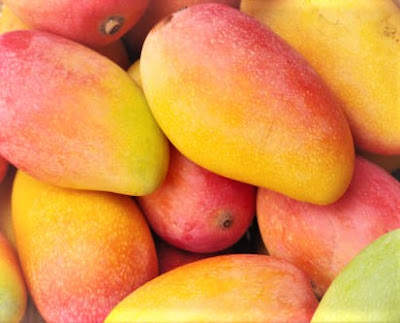 |
| Mango |
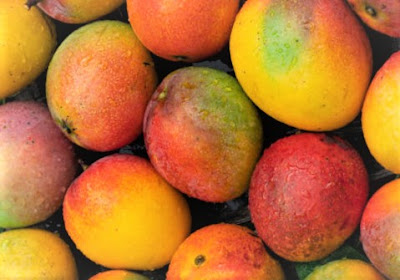 |
| Mango |
6. Apricot
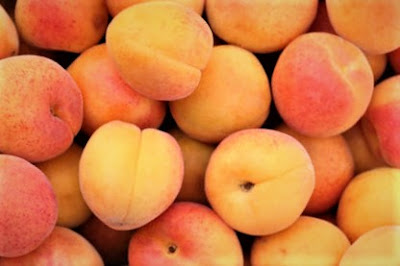 |
| Apricots |
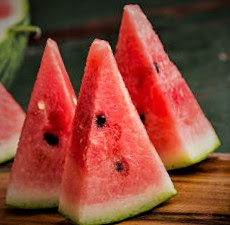
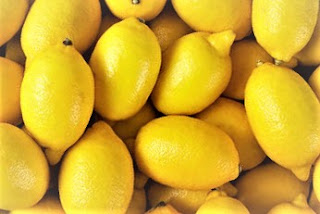
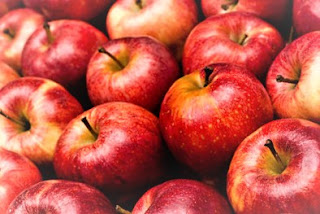
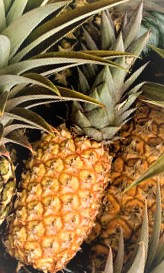
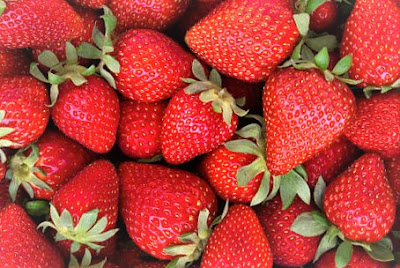
.png)

.png)


.png)

.png)

No comments:
Post a Comment
Please do not enter any spam link in the comment box.